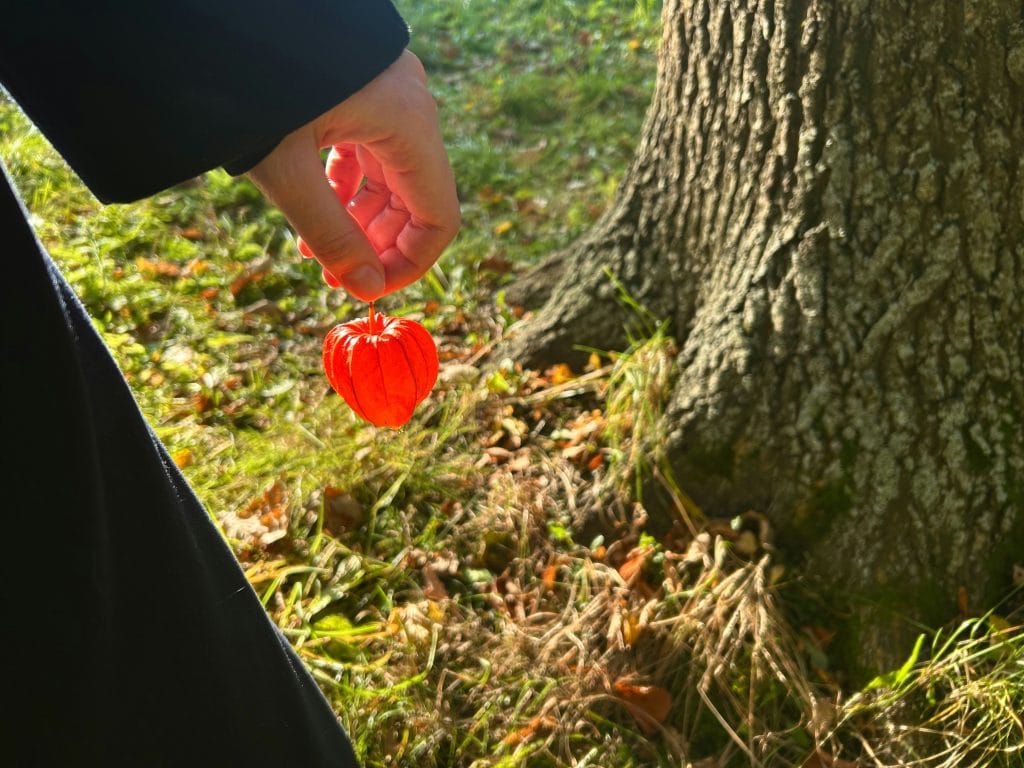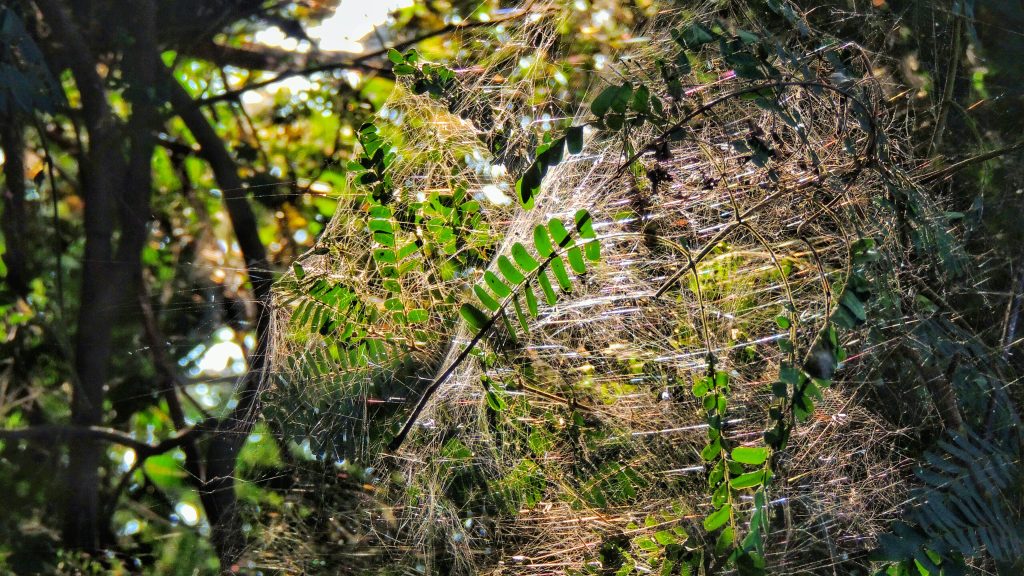Last week, something special happened: I heard Parker Palmer speak live on Zoom for the first time in my life.
It was special because Parker Palmer is one of my heroes — a sociologist turned writer and teacher on the well-lived life, who really gets it, and whose words have made me feel seen and validated countless times when I’ve feared getting everything wrong. He’s been a major influence on me ever since I read The Courage to Teach some ten years ago.
Parker Palmer is 86, so signing up for the talk also came with a sense of urgency: how many more times will I get a chance like this? Even my partner Antonio, who isn’t typically drawn to the inner work I’m passionate about but has heard me go on about Parker Palmer for many years, decided to join and watch the talk with me.
So there we were, in our living room in Spain, just before dinner time. And there was Parker Palmer (PP), in his home office in the US in the middle of the day, being interviewed by Kelly Deutsch in front of hundreds, maybe thousands, of people — about growing old and keeping hope alive in the face of personal limitations and all that’s not well in the world.
From the start, I felt so moved by the happening of it! The thought that at 86 he’d put himself in front of his computer to do this just filled me with respect and love.
Smaller Heartbreaks
And sure enough, I got a lot from his talk.
After hearing his reflections on the importance of intergenerational connections, I decided to give a local book club with mostly much younger women a chance.
His caution not to see our missions to change the world for the better as futile when we don’t get the response we hoped for — that made me feel my backbone.
But the real kicker came towards the end, when he said that all of us could let in life’s little heartbreaks more.
He defined these smaller heartbreaks as “the stuff we can, and do, recover from”: the loss of a friendship, the failure of a dream, the demise of a project, a rejection, a limit revealed, a disappointment.
I recently faced a loss of that kind in my work — something I wanted to happen did not happen — and had been marvelling at the cycles of grief and shame I had to travel in its aftermath. Thankfully, by now I know enough about these cycles to find good (self-)companionship on those journeys, knowing, too, that I will get to the other side. Still, the experience of feeling knocked down is fresh every time.

Rather than trying to make ourselves immune to these losses, as we might have been taught to do, PP recommended being receptive to the grief they bring in their wake.
It is precisely this grief, he argued, that can serve to stretch the heart and make it supple, making us more open-hearted over time. He told stories of people who emerged from heartbreak with an enlarged capacity for taking in life’s vastness and for being there for others in spacious and empathetic ways. Repeated heartbreak then doesn’t shatter us, but breaks us open to become more available to and present in the world.
Interviewer Kelly Deutsch said: “I love that… and I hate it!”
As for me, I flat out loved it. PP’s words were like medicine to me, the medicine of validation. I felt acutely seen in my recent journey with loss — and more than that, I felt righted. I had been right not to deny or ignore my heartbreak, not wrong to let myself grieve. And if such heartbreaks of the smaller kind can help me grow more present and spacious, then yes! I am alright with being affected by my losses.
Heartbreak and Coping in Academia
My mind went to academic life — the life from which I come and to which I remain close as a coach for academics — and how full it is of experiences of rejection, failure, limits, and disappointment that fit PP’s definition of little heartbreaks so well. How people in academia learn to cope with these in different ways, some of which make hearts not open but close up. How one of the most important parts of my work as a coach is to help others find ways to emerge from heartbreak enlarged and more unapologetically themselves, rather than diminished and defensive.
I’ve often come across the advice to grow a thicker skin. Even advice that starts with “feel your feelings” can ultimately leave the impression that it’s all about bouncing back as quickly as possible and moving on.
Not central to academic culture is the thought that maybe there is something to gain from letting in those little heartbreaks.
What would it take to make that thought take hold more, to make it alright for people to let the pain of such losses in more? To help them feel right for doing so, because they have emerged more capacious and empathetic on the other side? What would academic lives — and life — become then?
A Nice Little Twist
When the talk was over and Antonio and I were in the kitchen to get our dinner ready, I shared my amazement at how a person could say just exactly what I needed to hear, how deeply PP’s words had resonated, and how helpful they had been.
I asked Antonio how he had found it.
“It was okay,” he said. There hadn’t been anything very surprising or new in what PP had said. “What any grandpa would say,” was his irreverent take on it.
I widened my eyes in disbelief.
Then I chuckled.
I chuckled because it was so funny. It was so perfect.
After depth, lightness. After feeling deeply touched and galvanized, laughter.
Standing there next to my husband in our kitchen, I realized I’m fine — more than fine — to follow my inner compass toward the voices, ideas, and resources that help me feel seen, known, and encouraged.
I’m also fine — more than fine — for these voices, ideas, and resources, not to be experienced by others in the same way. For others to follow their own compasses.
There was a nice lightness to this. A feeling of freedom.
We had a lovely meal. All evening I felt content in my own skin.
Walking Forward
I came away from that experience thinking about how I could put more of what I’ve learned about heartbreak in work and career into words and resources that might help others.
I also came away with a renewed realization of how different people are — how varied our needs, how different the wavelengths at which we connect — yet also how interlinked we are. Happily, there is an abundance of help, support, encouragement, wisdom and relief available from which each of us can find some good matches. When we do, it’s wonderful!

Saying that Parker Palmer is one of my heroes doesn’t mean he should be one of Antonio’s or yours. Nor, for that matter, do I think that everyone “needs” heroes. But looking out for who or what truly speaks to our needs — to some of our needs, in felt ways — and allowing ourselves to receive that support, is a genuinely important thing we can and must do for ourselves.
In conversations behind the scenes, my friend and collaborator, the academic editor D. Scott, and I have been talking about this process as assembling an “ecosystem of support.”
But more about that another day!
*
For now, I hope there’s something here that resonates, that validates or rights you, or that may be of use to you in another way.
If you’re interested in a conversation about how I might support you walking your own path of integrity and inspiration within or beyond academia, I warmly invite you to get in touch with me.
And in case you would like to check out Parker Palmer, the talk I attended was part of the Spiritual Wanderlust summit. For work of his that connects most directly to the academic life, I recommend The Courage to Teach (on teaching), and Let Your Life Speak (on career and vocation).
Image credits:
- Sofa and flowers by Stephanie Klepacki
- Person carrying Chinese Lantern by Ad Honores
- Plants and web by Tetra




